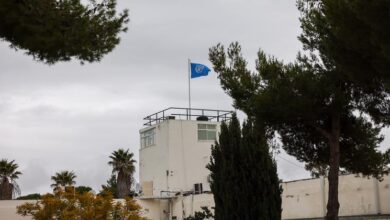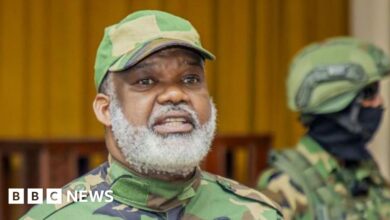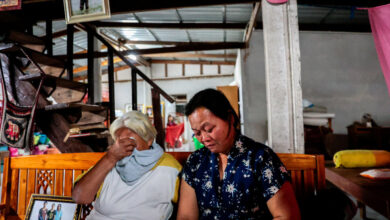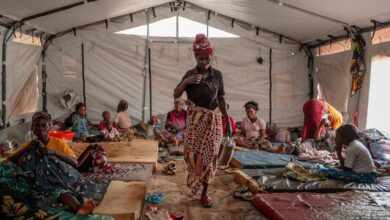Israel and Lebanon ‘close to reaching a ceasefire agreement’
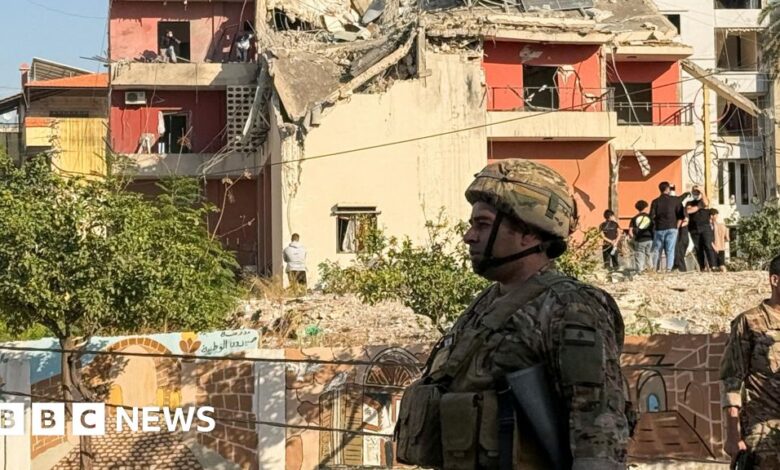
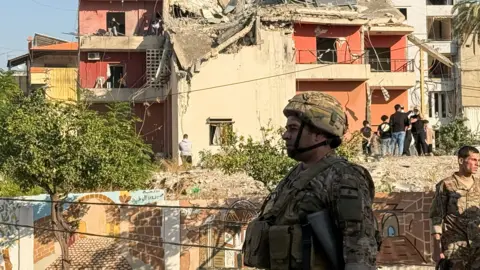 Reuters
ReutersIsrael and Lebanon appear to be close to reaching a ceasefire agreement and Israel’s cabinet will meet on Tuesday to discuss the deal, Israeli and US officials said.
A 60-day ceasefire is being proposed to end fighting between Israel and Iran-backed Lebanese militia Hezbollah.
It is said to include the withdrawal of Israeli forces from southern Lebanon and an end to Hezbollah’s presence in the region.
People often say the darkest time is before dawn. The firefight between Israel and Hezbollah is intensifying, even as the two sides argue over the final details of the deal.
Sunday saw About 250 shells were fired at Israel from Lebanonmost were blocked, while the Israeli Air Force continued to carry out airstrikes on suspected Hezbollah positions and weapons depots in Beirut and elsewhere.
According to a Western diplomat who spoke on condition of anonymity, the deal would include increasing the presence of the Lebanese army in the area vacated by Israel and Hezbollah.
Israeli Prime Minister Benjamin Netanyahu is said to have agreed to the deal “in principle” and Lebanese parliament deputy speaker Elias Bou Saab said, quoted by Reuters, that there are currently “no serious obstacles” for a ceasefire.
He said a major sticking point – who will monitor the ceasefire – has been resolved, with a five-nation committee established, of which France is a member and chaired by the US.
White House National Security spokesman John Kirby also said the agreement was “close” and discussions were on track.
Additionally, the agreement was hampered by Israel’s insistence on the right to return to Lebanon and take any military action it deemed necessary if it believed that Hezbollah was returning to southern Lebanon, the south of the Litani River or prepare to launch an attack on Israel.
This freedom of movement is unacceptable to both Hezbollah and the Lebanese government but Amos Hochstein, the US special envoy, is said to have made it clear when traveling between the two countries that there is a time limit to the ceasefire agreement. shoot this.
Concerns about how the ceasefire will be implemented, given the relative weakness of both the United Nations Interim Force in Lebanon (Unifil) and the Lebanese Army, appear to have been allayed.
But then there is also the domestic Israeli factor. Far-right National Security Minister Itamar Ben Gvir took to social media to speak out against the ceasefire agreement, calling it “a serious mistake”. He said that now, with Hezbollah in a militarily weak position, was “a historic opportunity” to destroy it.
The conflict began on October 8 last year, when Hezbollah fired rockets into Israel in support of Hamas in Gaza.
Israel’s stated goal in the war against Hezbollah – which intensified in September – is to allow the return of some 60,000 residents who have been displaced from communities in northern Israel because of the group’s attacks.
It then launched a major offensive against the militia, destroying much of its infrastructure and weapons, and killing leader Hassan Nasrallah and other senior figures .
Lebanese authorities said any ceasefire should be limited to the terms of United Nations Security Council Resolution 1701, which ended the 2006 war between Hezbollah and Israel.
The resolution includes the withdrawal of Hezbollah fighters and weapons from the areas between the Green Line – the unofficial border between Lebanon and Israel – and the Litani River, about 30 kilometers from the border with Israel.
Israel says that was never fully respected, while Lebanon says Israeli violations included military flights over Lebanese territory.
In Lebanon, more than 3,750 people have been killed and at least 15,600 injured since October 2023, with more than a million people forced to flee their homes, according to Lebanese authorities.
Israeli police said several people were injured and buildings damaged in Sunday’s attacks by Hezbollah on northern and central Israel, some of them near Tel Aviv.
The attacks followed an Israeli airstrike on central Beirut on Saturday, in which the Lebanese Health Ministry said 29 people were killed.
Hostilities continued on Monday, with Lebanon’s Health Ministry saying Israeli airstrikes killed at least 12 people in the south.
Israel also carried out multiple attacks on Beirut’s southern suburbs, saying they targeted buildings linked to Hezbollah.


